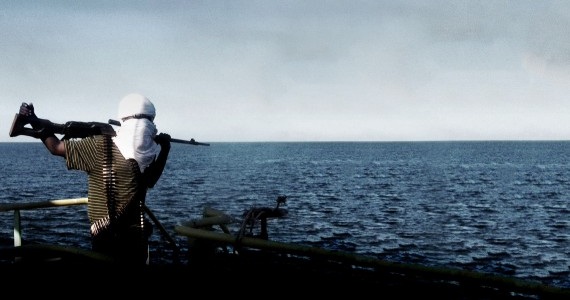
Since 2009, piracy in the waters off the eastern coast of Africa has grabbed the world’s attention and become a major problem for commercial and industrial shipping. Initially, many were caught off guard– the first vessels, hijacked in later 2008, were successfully ransomed for millions of dollars.
Since those first incidents, the international community and shipping industry have joined efforts to eradicate the problem. Piracy harms global trade by increasing the cost of shipping, creates a lawless environment for criminals and terrorists to operate in, and greatly threatens regional stability overall.
In the Indian Ocean, while pirates do sometimes steal cargo, they mostly make their money by taking hostages and holding them for huge ransoms. The problem reached its peak in 2011 when 31 ships and 710 hostages were all controlled by pirates at once.
Only recently has the cooperative international coalition seen the fruits of their years of labor. An increased naval presence from willing militaries and the increased use of private armed security operators have been the two leading factors in the decline. Additionally, ships are beginning to make use of best practices to avoid dangerous areas and outfit their ships so that they’re less vulnerable to attack.
The pirates, once able to use hijacked vessels as huge mother ships from which to launch their attacks, have had to change up tactics. They now use small skiffs that are unattached to any major vessels, and can easily avoid larger naval patrols by blending in the legitimate fishermen.
Unfortunately, the ocean is quite large– too large, in fact, to be completed covered by naval patrols. The pirates have no trouble going where international navies are not. As has been the concern of many in the industry, they are starting to simply change arenas and practice their dark art in areas that are relatively unpoliced.
Recent attacks have occurred further south off the coast of Africa near the island nation of Seychelles. In the north, the Gulf of Oman has also seen a rise in attacks. Finally, there are some signs that the pirates are being pushed further east, attacking off the coast of India and even venturing into the Malacca Straits between Indonesia and Malaysia.
National governments are realizing that in the end, the ocean is just too large to constantly police. With their current strategy, the fear is that they are pushing pirates around the map than reducing their overall presence. For this reason, many governments are encouraging shippers to go with private security contractors. To this date, no vessel employing these guards and using maritime security best-practices have been successfully hijacked by pirates.
However, using private security firms has its own challenges. Many port-nations have strict restrictions on what kind of weapons ships are allowed to have on board with them, or if they’re even allowed to carry weapons in the first place. Additionally, the law of the sea remains rather unclear on the rules of maritime conflict and engagement.
The International Maritime Organization is working with other groups to clarify these rules and establish ones that do not yet exist. Individual countries are also establishing legislation the provides guidelines for armed guards that operate on ships flying their flag.
Usually, the mere presence of armed guards is enough to deter pirates in the first place. Oftentimes breaking off their approach when they notice the operators, or when they encounter even light resistance, they search for easier targets. Many vessels still use dangerous short-cuts to save on fuel, or refuse to employ armed guards or best-practices to deter piracy. Pirates instead seek out these ships for an easier time.
Whatever steps are taken on the ocean, however, do not strike at the root of the problem. Piracy runs deep into the land of Somalia. Pirates are well networked and supported by large yet shadowy organizations on the mainland. These networks thrive on war-torn countries like Somalia, because their general lawlessness allows them to operate without trouble.
The international community is beginning to realize that there needs to be a deeper approach to rid the world of this problem once and for all. Somalia needs to be stabilized so that the country itself can police pirates on its shores and within its borders. Moreover, once the country is stabilized, the economy can begin to recover, which will have the major effect of supplying people with legitimate ways to earn income and keeping them from resorting to piracy.
Somalis themselves are beginning to see the detrimental effects of piracy on their nation. This is indeed a vital step, because in the end, it will have to be Somalis themselves that take the final step in ridding the world of this scourge. While other nations may be needed to help Somalia back on its feet, only her own citizens can outright reject piracy and attempt to clean up the international opinion of their tainted reputation.
Recently, Somalis are beginning to reject the choice to resort to piracy. Coastal communities are becoming less willing to give pirates safe-haven. This is partly because they can understand the damage it does to their country, but most likely a reaction to the brutal and inhumane way that pirates operate in general. As the ruthless bands of criminals become more violent and desensitized, they’re extending their reign of terror to the local Somali communities they inhabit, which is proving to be a fatal mistake.
In the end, a multi-faceted and comprehensive approach is needed to combat the problem. Yes, international waters need to be policed by navies; yes, shipping companies need to employ armed guards and anti-pirate best-practices. But before the book can finally be shut on piracy, the world needs to help Somalia get back on its feet and provide a reasonable alternative that is more attractive than piracy.